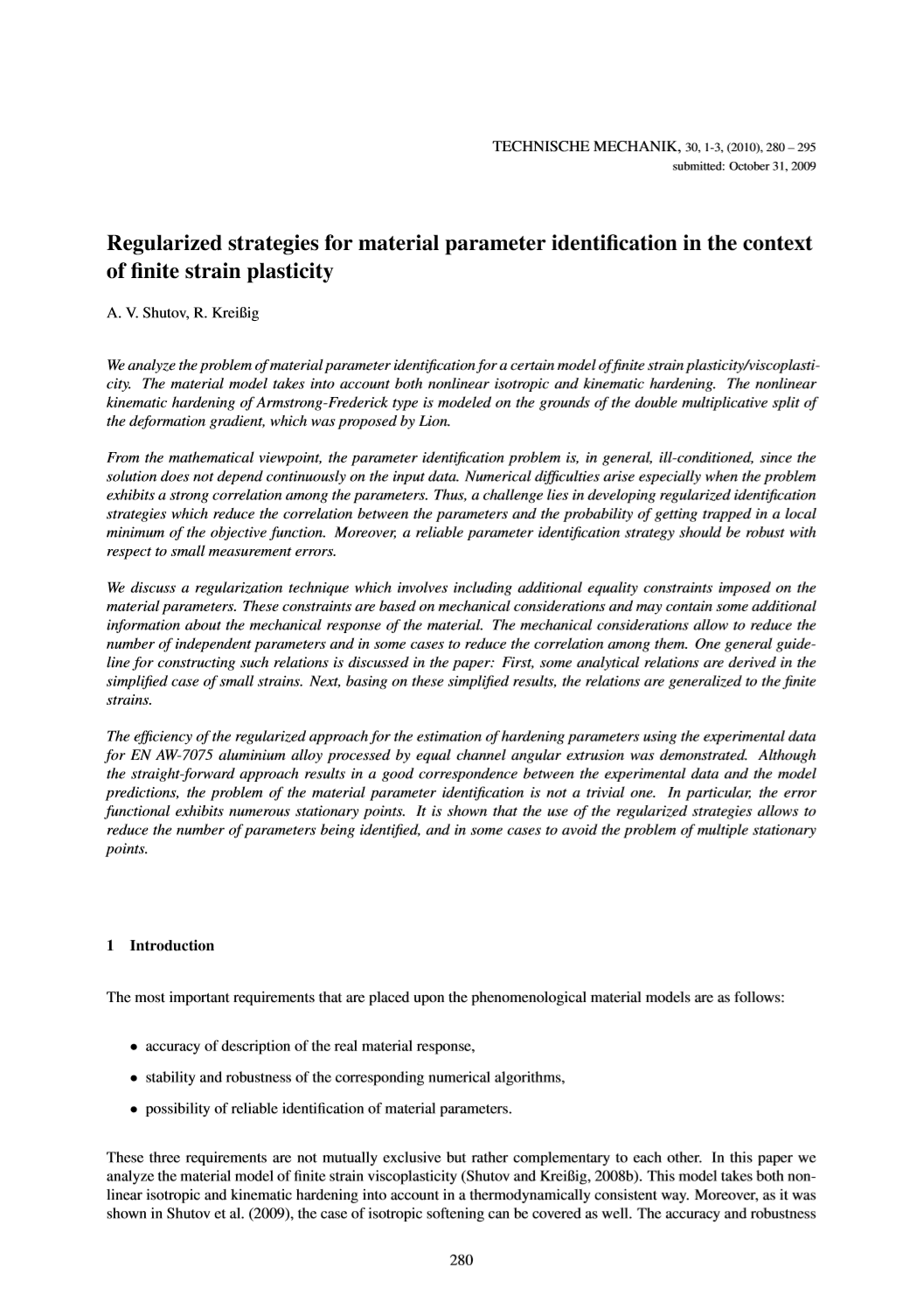Regularized strategies for material parameter identification in the context of finite strain plasticity
Abstract
We analyze the problem of material parameter identification for a certain model of finite strain plasticity/viscoplasticity. The material model takes into account both nonlinear isotropic and kinematic hardening. The nonlinear kinematic hardening of Armstrong-Frederick type is modeled on the grounds of the double multiplicative split of the deformation gradient, which was proposed by Lion.
From the mathematical viewpoint, the parameter identification problem is, in general, ill-conditioned, since the solution does not depend continuously on the input data. Numerical difficulties arise especially when the problem exhibits a strong correlation among the parameters. Thus, a challenge lies in developing regularized identification strategies which reduce the correlation between the parameters and the probability of getting trapped in a local minimum of the objective function. Moreover, a reliable parameter identification strategy should be robust with respect to small measurement errors.
We discuss a regularization technique which involves including additional equality constraints imposed on the materialparameters. These constraints are based on mechanical considerations and may contain some additional information about the mechanical response of the material. The mechanical considerations allow to reduce the number of independent parameters and in some cases to reduce the correlation among them. One general guideline for constructing such relations is discussed in the paper: First, some analytical relations are derived in the simplified case of small strains. Next, basing on these simplified results, the relations are generalized to the finite strains.
The efficiency of the regularized approach for the estimation of hardening parameters using the experimental data for EN AW-7075 aluminium alloy processed by equal channel angular extrusion was demonstrated. Although the straight-forward approach results in a good correspondence between the experimental data and the model predictions, the problem of the material parameter identification is not a trivial one. In particular, the error functional exhibits numerous stationary points. It is shown that the use of the regularized strategies allows to reduce the number of parameters being identified, and in some cases to avoid the problem of multiple stationary points.





